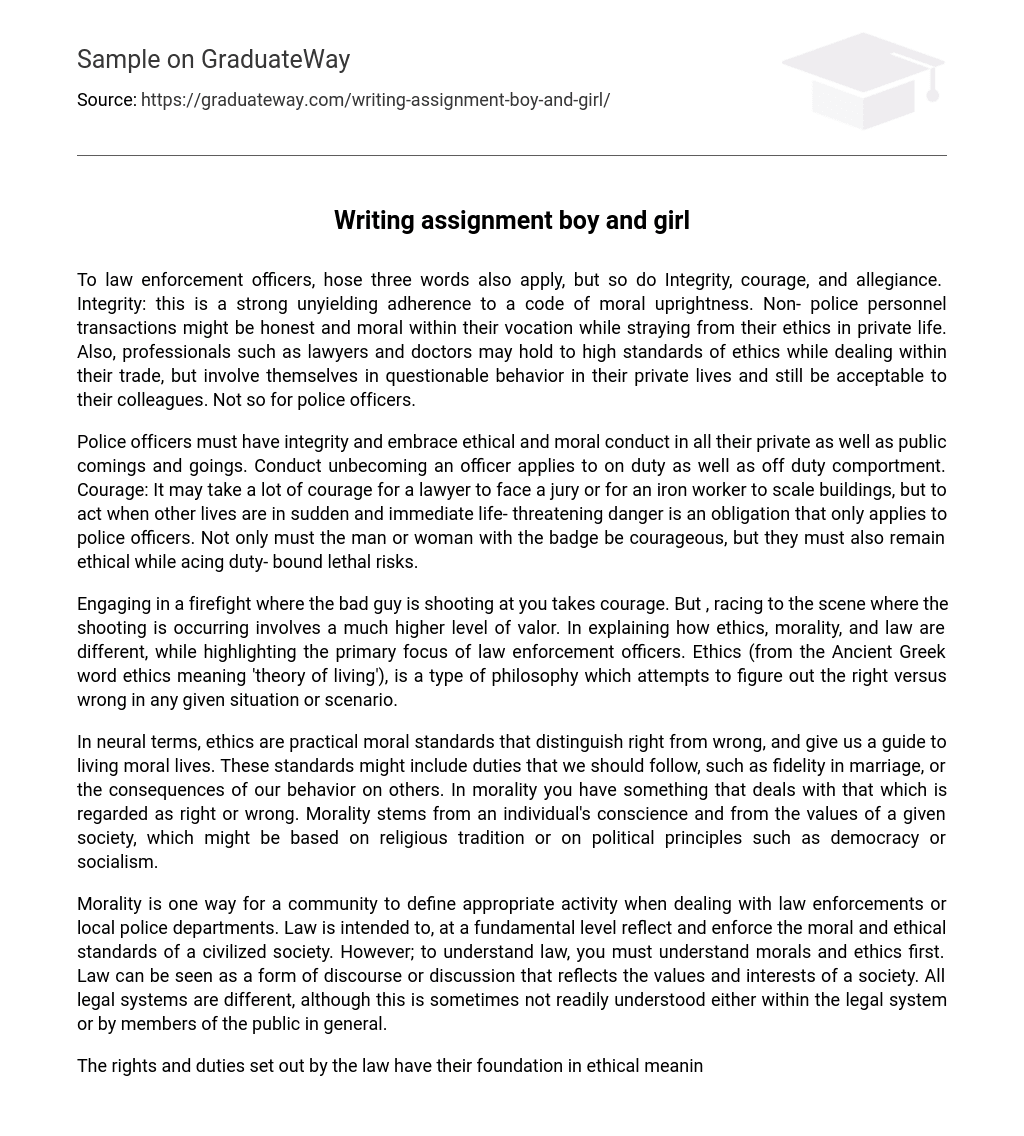To law enforcement officers, hose three words also apply, but so do Integrity, courage, and allegiance. Integrity: this is a strong unyielding adherence to a code of moral uprightness. Non- police personnel transactions might be honest and moral within their vocation while straying from their ethics in private life. Also, professionals such as lawyers and doctors may hold to high standards of ethics while dealing within their trade, but involve themselves in questionable behavior in their private lives and still be acceptable to their colleagues. Not so for police officers.
Police officers must have integrity and embrace ethical and moral conduct in all their private as well as public comings and goings. Conduct unbecoming an officer applies to on duty as well as off duty comportment. Courage: It may take a lot of courage for a lawyer to face a jury or for an iron worker to scale buildings, but to act when other lives are in sudden and immediate life- threatening danger is an obligation that only applies to police officers. Not only must the man or woman with the badge be courageous, but they must also remain ethical while acing duty- bound lethal risks.
Engaging in a firefight where the bad guy is shooting at you takes courage. But , racing to the scene where the shooting is occurring involves a much higher level of valor. In explaining how ethics, morality, and law are different, while highlighting the primary focus of law enforcement officers. Ethics (from the Ancient Greek word ethics meaning ‘theory of living’), is a type of philosophy which attempts to figure out the right versus wrong in any given situation or scenario.
In neural terms, ethics are practical moral standards that distinguish right from wrong, and give us a guide to living moral lives. These standards might include duties that we should follow, such as fidelity in marriage, or the consequences of our behavior on others. In morality you have something that deals with that which is regarded as right or wrong. Morality stems from an individual’s conscience and from the values of a given society, which might be based on religious tradition or on political principles such as democracy or socialism.
Morality is one way for a community to define appropriate activity when dealing with law enforcements or local police departments. Law is intended to, at a fundamental level reflect and enforce the moral and ethical standards of a civilized society. However; to understand law, you must understand morals and ethics first. Law can be seen as a form of discourse or discussion that reflects the values and interests of a society. All legal systems are different, although this is sometimes not readily understood either within the legal system or by members of the public in general.
The rights and duties set out by the law have their foundation in ethical meaning to decision making, and are aimed at setting and upholding what are called normative standards, by which is meant the type of behavior deemed acceptable and desirable in society. In recommending two ways that a police chief should use ethics and the code of conduct in decision making one should know that The International Association of Chiefs of Police (ICP) has crafted an Oath of Honor to outline the profession’s ethical code. In taking the oath, officers promise to uphold public trust, honor the constitution and act with integrity.
The ICP has also developed a set of conduct requirements for the profession. Making ethical decisions within the Police Department is an absolute necessity in order to gain the confidence of the public that police officers serve. Ethical decision making does not mean making a decision that everyone agrees with. It means making an ethical decision between competitive choices. When dealing with the code of conduct, The Police Chief must inform all officers that they are expected to use spoonbill the discretion vested in his position and exercise it within the law.





